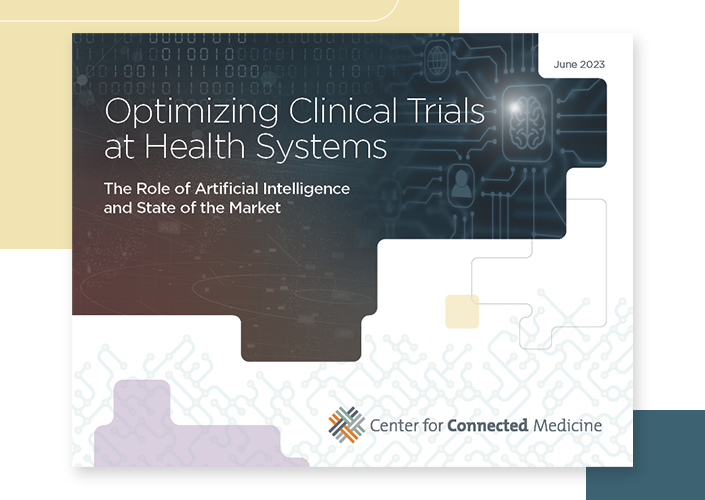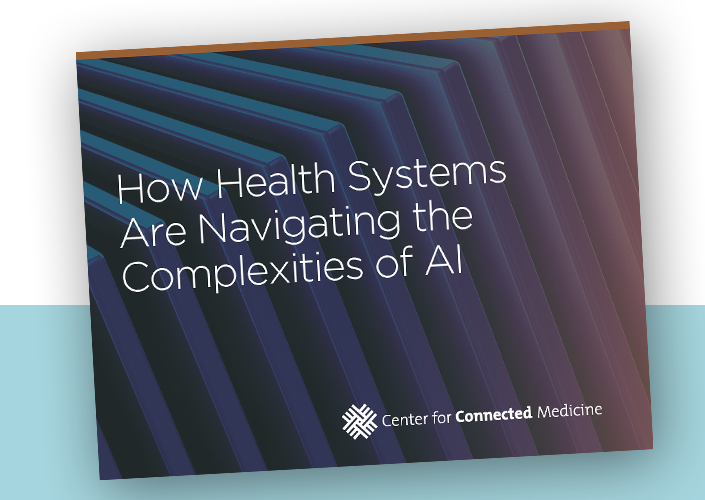Research also examines AI use in health care now and in the future
Matching patients to clinical trials could be improved with an artificial intelligence (AI) solution that allows health systems to identify participants more quickly and easily, according to new research from the Center for Connected Medicine (CCM).
Health system leaders surveyed by the CCM ranked the timely identification of patient cohorts as the biggest challenge they face in meeting the needs of clinical trial sponsors. And nearly two-thirds of those leaders agreed that an AI solution could help them better identify, match, and recruit patients for clinical trials, the survey found.
Results of the survey were published in a report, “Optimizing Clinical Trials at Health Systems: The Role of Artificial Intelligence and State of the Market,” which is available for download above.
Many trials fail to meet enrollment targets and timelines
Academic medical centers and other health systems participate in clinical trials for access to new drugs, treatments, and devices for a variety of reasons, including to offer more treatment options to their patients and attract researchers and clinicians.
However, there are many challenges in running successful studies. Around 80% of trials fail to meet their initial enrollment targets and timelines, which can add significant costs for drug developers, according to a 2020 study published in the Journal of Medical Internet Research.
Health systems typically follow a time- and labor-intensive process of manually reviewing medical records to identify patients who might qualify for clinical trials. However, there is an emerging use case for AI to quickly and efficiently scan medical records to find participants.
Natural language processing can analyze unstructured data
“Clinical trials are an important part of providing life-changing care to our patients. However, it can be a significant challenge to match patients to studies. I’m excited by the potential for AI to help medical centers do a better job of finding and recruiting trial participants,” said Dr. Oscar Marroquin, Chief Health Care and Data Analytics Officer at UPMC, a founding partner of the CCM.
“We have already seen the benefits of using natural language processing to harness and analyze the vast quantities of unstructured data in health care to better understand the conditions of our patients. Applying these techniques for clinical trial matching would be an advantage for health systems, industry, and patients,” Dr. Marroquin said.
The CCM worked with KLAS Research to survey 58 executives and other senior-level contacts at health systems, many of whom specialize in AI and analytics, about their organizations’ use of AI. A subset of 45 respondents whose organizations participate in clinical trials were surveyed about opportunities to improve clinical trials.
In addition to using AI to find study participants, the CCM report identifies current and future use cases for AI at health systems. The most common use for AI at health systems identified in the report is disease management and prediction. The most cited use for AI that will see investment in the next two years is operational optimization.



